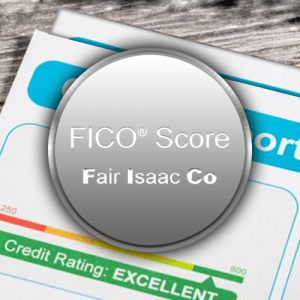FICO Credit Scores: What are they?
Credit ratings have a huge impact on the amount of credit and interest rates being offered by lenders. It’s an essential element of credit health. When clients submit any credit applications, lenders will want to clearly understand all risks they would face by lending their money. Upon ordering credit reports, lenders could also obtain credit scores relating to the documented report. Credit scores are numbers that review potential credit risks.
For a annual free credit report, visit https://www.annualcreditreport.com. You can see your credit score at MyFICO.
What Does My FICO Credit Score Entail?
These form of credit scores were devised by the renowned Fair Isaac Corporation. About ninety percent of prominent lenders utilize FICO credit scores to make substantive decisions on credit-oriented issues. These scores are usually calculated from diversified credit data info fragments featured in the credit report.
Collected data is then grouped into five distinct categories:
- Payment history (35%): How frequently you make payments on time
- Debt amount (30%): How much you owe compared to how much available credit you have access to
- Credit history time-span (15%): The longer you’ve had credit accounts open, the better
- Available credit mix (10%): What types of credit you use, such as installment loans versus revolving credit
- New credit records (10%): How many new credit inquiries are on your report
Through careful evaluations, involving keen comparisons between this information and past credit records, FICO scores approximate your prospective credit risk intensities.
 What’s an Excellent FICO Credit Score?
What’s an Excellent FICO Credit Score?
FICO credit scores cover a score range between 300 and 850. A greater score implies lesser risk while a lower score indicates higher risks. So the lower your credit score, the higher interest rate you’ll likely have to pay in order to get access to credit, like a bad credit loan. If you have good credit, you’ll pay less interest and have access to better types of loan products. However, these scores don’t necessarily speak so much about a borrower’s nature. A bad score doesn’t necessarily mean that the customer is unreliable.
While most lenders rely on FICO scores to decide on loan approvals, each lender has its own specific lending strategies. There are no standard credit scores for all lenders. And apart from FICO scores, many other factors are taken into consideration while evaluating actual interest charges, such as income, education, and job history.
In general, here’s how each credit score breaks down so you know exactly where you stand:
- 800+: This is considered excellent credit and you’ll most likely get access to the best rates and terms for loans and credit cards.
- 740 to 799: This range indicates very good credit and should still qualify you for competitive loan products.
- 670 to 739: If your credit score falls in this range, you’re in good company. The average American consumer has a credit score of 687, making this a common range that’s considered good credit.
- 580 to 669: This range is considered below average, but that doesn’t mean you won’t be approved for a loan or credit card. You just may pay higher interest rates compared to people with better scores.
- 579 and under: Anything under a 580 is considered poor credit. You may be restricted to bad credit loans.
Essential Details for Calculating your FICO Score
Whenever the credit agency calculates a credit score from your credit record, you’ll be supplied with adequate reasons that hugely influenced that picky score. And most often, these reasons tend to be negative since they outline possible causes of the low credit score.
In order for your FICO score to be accurately calculated, your corresponding credit report should contain detailed information that’s both reliable and up to date. If your credit history is limited, your credit score could suffer. It’s important to open at least one type of credit account that has been active for at least six months and at one point should have been reported to a credit agency within that time frame.
FICO Scores for all Agencies
You’ll have unique scores for each of the three major credit agencies: Experian, Equifax and TransUnion. These FICO scores depend solely on the information that each agency documents about you, which generally comes from creditors and lenders who report your account and payment information.
Each bureau considers only those details that are available in their own files without really having to outsource any further information. In many cases, your credit score for each bureau can vary. In this instance, a lender usually uses the middle score to determine your loan rates and terms.
When changes occur on your credit information, your credit score will also change accordingly. Hence, your last month’s FICO scores could be totally different from what lenders would obtain from the credit agency today.

